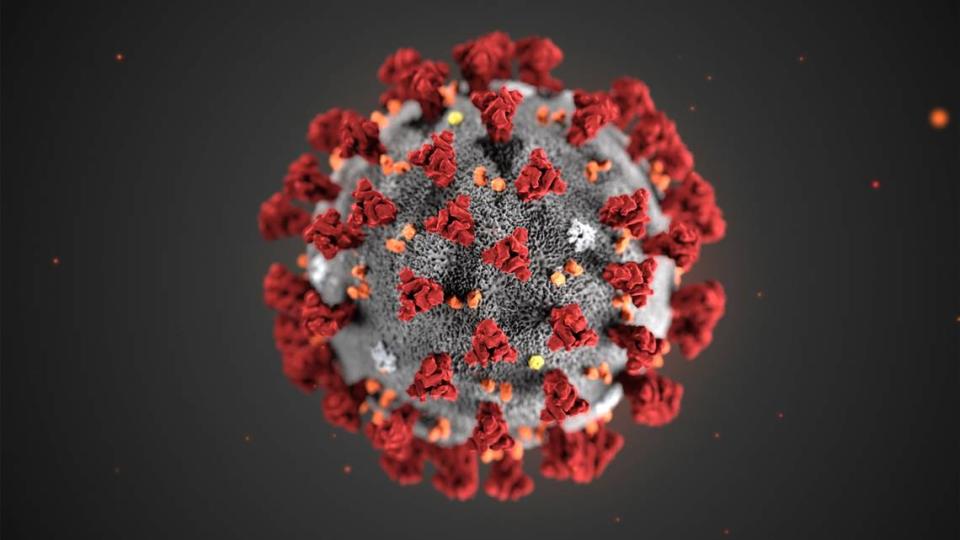Miami Gardens to postpone Jazz in the Gardens because of coronavirus concerns
Note: The Miami Herald and McClatchy news sites have lifted the paywall on this developing story, providing critical information to readers. To support vital reporting such as this, please consider a digital subscription.
Miami Gardens is postponing the Jazz in the Gardens music festival at Hard Rock Stadium “out of an abundance of caution” because of COVID-19, Mayor Oliver Gilbert announced early Thursday.
The decision came hours after Miami-Dade County confirmed its first positive case of the novel coronavirus.
Other events related to the festival, including a Women’s Impact Luncheon and Opening Night Party, were also postponed. Gilbert signed a local state of emergency late Wednesday night.
Change your plans: These Miami events are canceled or postponed because of coronavirus
The popular two-day music festival was slated to take place across Saturday and Sunday, featuring big-name artists including Mary J. Blige, The Roots, Ludacris, Charlie Wilson, Kirk Franklin and Jill Scott.
The Miami Gardens City Council voted Wednesday evening, 4-3, not to cancel the event, with Gilbert among the members pushing for it to go forward. But after Miami-Dade County Mayor Carlos Gimenez declared a countywide state of emergency and suggested he could cancel Jazz in the Gardens himself, Gilbert changed course Thursday morning.
“After much consideration and in an abundance of caution, I’ve made the decision to postpone the Jazz in the Gardens Music Festival and its ancillary events,” Gilbert said in a statement. “While I know our residents and patrons of jazz are disappointed, our decision was made with them in mind.”
Gilbert had previously said at the council meeting Wednesday that he could still take action to cancel the event “if the facts change” before the weekend.
The mayor had pointed out during the meeting that no more than 50,000 people were expected to attend the event across the two days. He said that, based on guidance he’d received from federal and state officials, he saw no reason to call off the festival.
“We can’t stop life,” Gilbert said. “What we’re doing is providing the availability to do the things that the [U.S. Centers for Disease Control and Prevention] recommends we do.”
Other council members disagreed, including David Williams Jr.
“If someone has the virus, it’s still gonna get out,” he said. “I don’t see how you’re gonna stop it.”
Coronavirus Newsletter
Sign up and keep up to date on the latest news and information on coronavirus symptoms, the risks, and the effects on Florida and beyond.
Williams and fellow council members Erhabor Ighodaro and Lillie Q. Odom voted to cancel the event. Gilbert, Vice Mayor Rodney Harris and council members Katrina Wilson and Reggie Leon voted not to cancel it.
Gilbert had suggested that Jazz in the Gardens is different from two large-scale events the City of Miami has canceled due to fears related to COVID-19: Ultra Music Festival and Calle Ocho Festival. Jazz in the Gardens is smaller, Gilbert said, and attracts fewer international visitors.
He added that there’s “not a lot of smashing of bodies together” at Jazz in the Gardens like there is at an event like Ultra. But that was before the first confirmed positive case in the county, and before Gimenez took a harder-line stance on large-scale events.
On Thursday, Gimenez also announced the cancellation of the Miami Open tennis tournament at Hard Rock Stadium later this month.
A city official said no artists had canceled their performances, and that there had been $2.3 million in box office ticket sales. The city was the title sponsor of the event.
In a statement Wednesday night, the city had said it had “a few requests” for refunds, but that they were “far exceeded by patrons seeking reassurance that the festival will not be canceled.”
“Jazz in the Gardens is nothing like Ultra or the Calle Ocho Festival,” the statement said. “Demographically, patrons of Jazz in the Gardens primarily come from Miami-Dade, Broward, and Palm Beach counties.”
Miami Herald staff writer Michelle Marchante contributed to this report.


